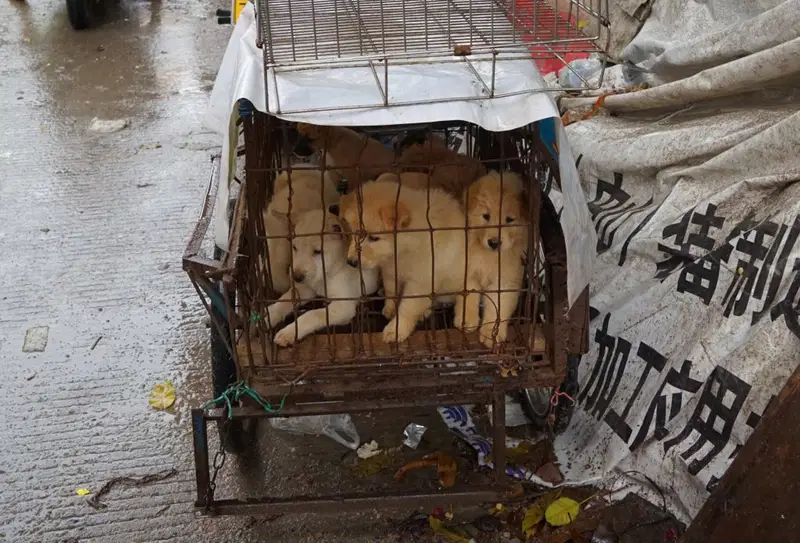World News
South Korea to compensate dog farmers ahead of 2027 dog meat ban

In preparation for the upcoming 2027 ban on dog meat consumption, South Korea’s agriculture ministry announced on Thursday a plan to compensate dog farmers as part of efforts to relocate and transition their businesses.
Nearly 500,000 dogs bred for meat are affected by this initiative.
While dog meat has been a longstanding element of South Korean cuisine, consumption has seen a dramatic decline in recent years as pet ownership grows in popularity.
Activists once estimated that up to a million dogs were slaughtered annually for the trade, but this figure has decreased as societal attitudes shift.
The decision follows a landmark bill passed by South Korea’s parliament in January, which prohibits the breeding, slaughter, and sale of dogs for meat.
Under the compensation scheme, farmers who agree to close their operations before the ban will receive payments ranging from 225,000 won (US$169) to 600,000 won per dog.
This move marks a significant step towards ending the controversial practice and reflects changing perspectives on animal welfare in South Korea.
“To proactively reduce the current population of around 466,000 dogs (bred for food), we plan to encourage farmers to voluntarily limit breeding,” the agriculture ministry said in a statement.
The government has tentatively allocated about 100 billion won ($75.2 million) to help 5,898 dog farms, slaughterhouses, restaurants, distribution companies and others close their operations, vice agriculture minister Park Beom-su said.
The government would also encourage the adoption of many of the dogs or their placement in safe shelters to avoid having them put down or processed for consumption before the ban.
Low-interest loans will also be offered to farmers and butchers to help them move to other agricultural ventures, as well as subsidies for retail and food service business owners.
Dog farmers said the ban infringed on their freedoms and that the compensation package was not enough to alleviate economic hardship.
“We… cannot close our businesses for such a small amount,” a group of dog farmers said in a statement sent to AFP.
Under the new law, breeding, selling and slaughtering dogs for their meat will be punishable by up to three years in prison or fines of up to 30 million won ($22,578).
Support for the ban has grown under President Yoon Suk Yeol, an animal lover who has more than 10 pets, and First Lady Kim Keon-hee, a vocal critic of dog meat consumption.

























